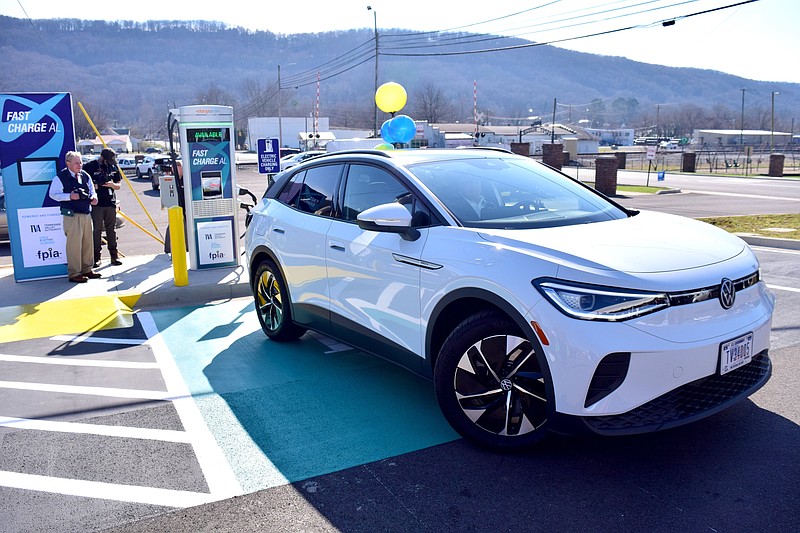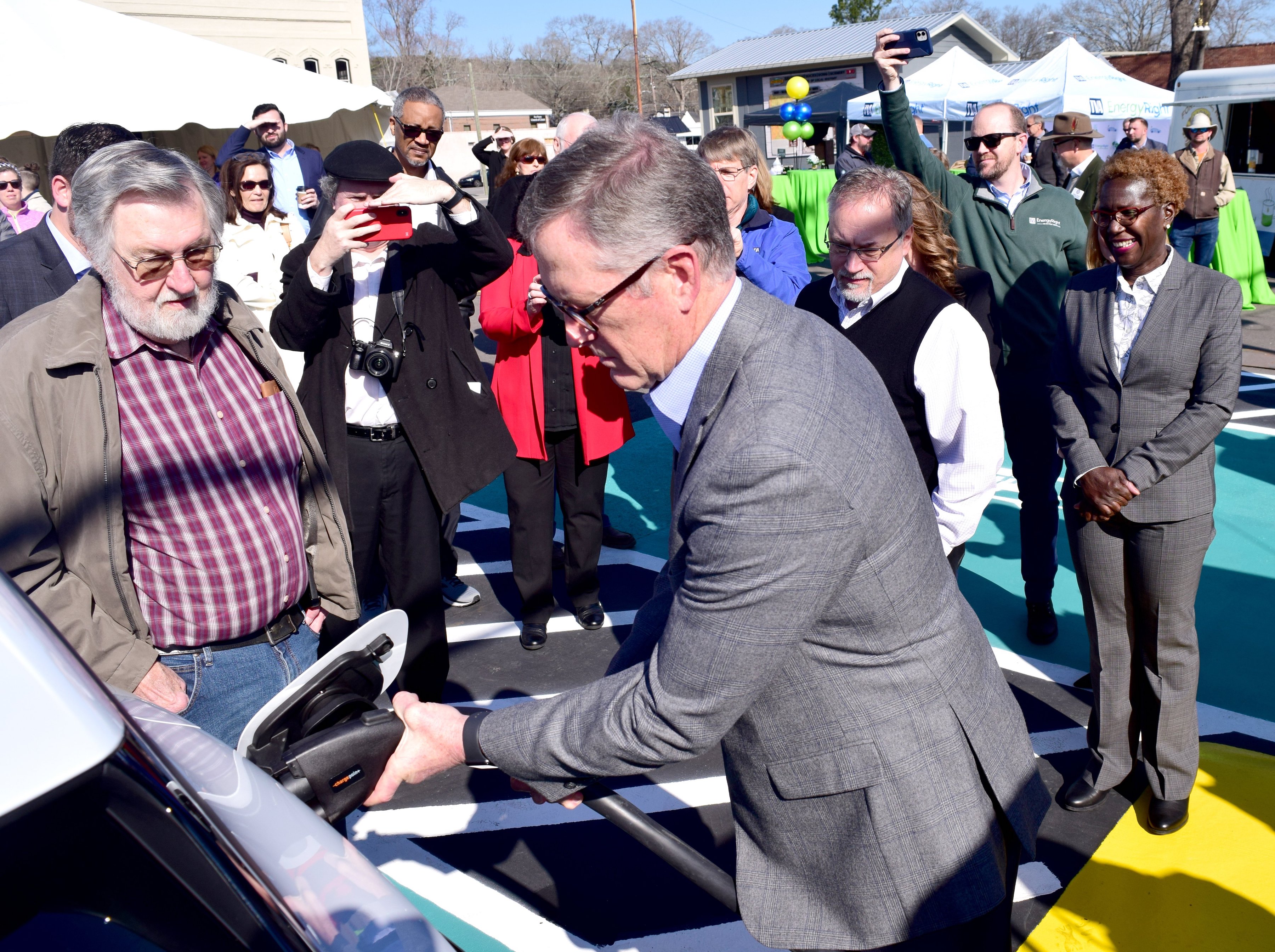More than two years after the state of Tennessee and the Tennessee Valley Authority launched an ambitious program to establish rapid-charging stations every 50 miles along highways across the Tennessee Valley, fewer than a dozen locations are offering the quick-charging devices under the "Fast 50" program.
But three more sites are due to open in the next month and 53 other sites, including Chattanooga, are developing locations to activate multiple fast-charging devices within the next year to help electric vehicle owners stay on the road longer while traveling away from home.
Drew Frye, TVA's manager of commercial energy, said TVA is working with local power companies to support the development and management of the Fast 50 network. Getting the chargers in place is taking some time, but Frye said the network of fast chargers is taking shape to help address range anxiety concerns of current and would-be electric vehicle owners.
"We knew going in that even under ideal conditions it would take 12 to 18 months to develop one of these rapid-charging stations from finding the site, purchasing the equipment and lining up all of the contractors to get the job done," Frye said in a telephone interview.
Local power companies that distribute TVA-generated power will own and operate the charging stations to help supplement the growing private network of chargers, Frye said. Fort Payne, Alabama, opened the first of the Fast 50 stations in January 2022 to lure EV users off Interstate 59 into downtown shops with a pair of fast-charging stations installed across from the city's hosiery museum.
But finding suitable sites, identifying the best plug technology and securing electrical and charging equipment amid the supply chain challenges from the pandemic has taken longer than many other utilities, like Chattanooga's EPB, first projected.
EPB is finalizing plans for a fast-charging station to help serve EV commuters, but it will likely be next year before the rapid chargers are in place. In an email message Friday, EPB spokeswoman Sophie Moore said the proposed charger location "is in final site reviews as part of required state approvals" to access state assistance for the equipment costs.
"We still expect to announce the site this fall," Moore said.
TVA has set a goal of helping boost the number of electric vehicles on the roads in its seven-state region from about 45,000 today to more than 200,000 by 2028. The fast-charging network attempts to allay consumers' anxiety about running out of juice on longer trips by providing fast-charging options at least every 50 miles along major highways through the Tennessee Valley.
Frye said meeting the goal of a rapid charger every 50 miles on major highways in the Tennessee Valley, beyond the charging network already in place, is estimated to require 80 new charging sites. At each location, at least two rapid chargers will be installed, and many of the sites will have four rapid chargers to ensure there are enough charging devices available when needed.
The rapid chargers planned for the "Fast 50" can charge most electric vehicles to at least 80% of their capacity within 30 minutes.
According to the online charging service plugshare.com, Chattanooga already has about 250 public charging stations — one of the highest numbers of any city in Tennessee. But most of those chargers require a few hours to fully charge a car battery.
Last week, the Blink Charging Co. announced it has been included in a new two-year contract with TVA to help supply a range of EV charging solutions. TVA has installed hundreds of vehicle chargers across the Tennessee Valley to serve its own vehicle fleet and to help promote EV adoption, and Frye said TVA has included a number of charging systems in its network.
Electric vehicle sales in the Southeast grew by 49% last year, and the region is attracting many of the new manufacturing facilities for both electric vehicles and the batteries that power such cars and trucks. According to a recent report by the Environmental Defense Fund, Tennessee has attracted more than $16.6 billion in investments in EV manufacturing since 2015, adding more than 18,300 new EV manufacturing jobs.
But EV adoption in the South has still lagged most of the nation, with less than 2% of all cars on the road in the Tennessee Valley being battery powered, Frye said.
President Joe Biden has set a goal that up to half of all new vehicle sales be electric by 2030 to cut emissions and fight climate change. The infrastructure law adopted in 2021 provides $5 billion to install or upgrade chargers to help meet Biden's goal of having 500,000 EV charging stations nationwide.
Contact Dave Flessner at dflessner@timesfreepress.com or 423-757-6340.

